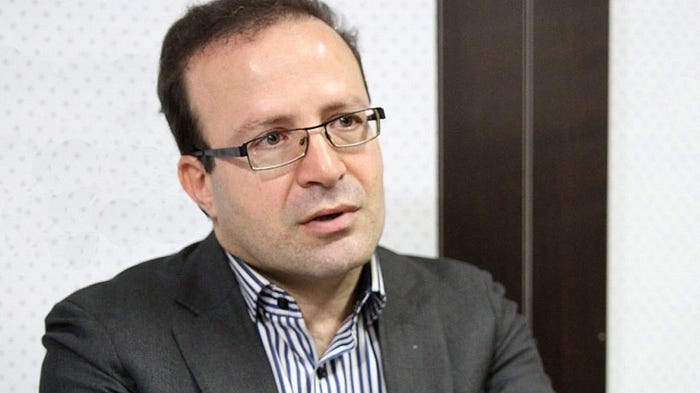Iranian Kurdish academic becomes victim of Iran’s hostage diplomacy

Iran on 13 December has sentenced the Kameel Ahmady, a British-Kurdish academic originally from the city of Naqadeh in Iran, to eight years in prison and fined for $727,000 USD on charges of attempting to topple the Iranian government.
He is one of the many dual citizens that have become victim of Iran’s hostage politics. Several other academics with dual nationality have been detained by the Iranian authorities as part of their ‘hostage diplomacy’ to further diplomatic interest of the Iranian government.
Ahmady was detained in August 2019 in Teheran but was released on a $40K bail in November and was not allowed to leave the country.
Read More: British-Kurdish academic released on $40K bail from notorious Iranian prison
His lawyer Amir Raesian tweeted on Sunday that Ahmady was convicted by the 15th branch of the Iranian Islamic Revolutionary court of “collaborating with a hostile government” and added they will appeal the verdict.
“Contrary to all legal analysis and hope for a fair trial, I was sentenced after being denied access to a lawyer during 100 days of detention and extrajudicial interrogations, and after two unprofessional trial sessions full of judicial violations,” Ahmady tweeted in Persian on Sunday
The Iranian Kurdish human rights organization Hengaw also confirmed that Ahmady was detained for a month in solitary confinement in Ward 2A of Evin Detention Center and was denied access to a lawyer during his detention.
Jila Mostajer, manager of the Iranian Kurdish human rights watchdog Hengaw, told me this is not the first security case to be filed against Iranian dual nationals and that most of them “have been detained on espionage charges.”
She said “it is likely that Iran widely detains dual national researchers to use them for exchanging Iranian agents detained in other countries.”
Mostajer also said Iran is also trying to link Iran’s internal protests to other governments, especially Israel and the United States, by detaining these dual national researchers and imposing heavy sentences on them.
The AP quoted a report by the semiofficial Tasnim news agency that Ahmady was also charged for cooperating with EU embassies for promoting homosexuality and visiting Israel as a reporter for the BBC and cooperating with hostile media, and also sending false reports about the country to the U.N.’s special rapporteur on human rights in Iran.
“Kameel Ahmadi, a well-known Kurdish researcher, is likely to be caught in the trap of the Iranian government’s scenario, because his accusations were based on security issues , while he has been doing research for years,” Mostajer concluded.
The New York Times on Aug. 14 2019 reported that Ahmady’s troubles that started last year could also be related to ‘roiling relations once again between Iran and Britain.” Also a British-Iranian woman, Nazanin Zaghari-Ratcliffe, has been jailed since 2016 on espionage charges.
Kameel Ahmady on social media accused the Iranian judicial authorities of targeting him and trying to stop his research.
“The main judicial point of accusations against my research is about the most harmful traditions against the children in the least privileged regions (minority areas of Iran) but the main goal is to accuse my researches’ relation with the cultural influence of 2030 document and halting my activities and research regarding minorities.”
“With all that remains, I can appeal this verdict and hope for a fair hearing in the appeal,” he concluded.
As a result he has to wait for the appeal court and is not able to leave the country.
Ahmady holds a post-graduate degree in anthropology and visual ethnography from the University of Kent and worked on community development programs with a focus on Female Genital Mutilation (FGM), early child marriage, and male circumcision.
In 2009, he published a guideline for traveling to the 15 provinces inhabited by Kurds in Turkey, titled “Another Look East and Southeast of Turkey”.
More importantly, in 2015, he made the first authoritative and comprehensive study on FGM in Iran, a story that was picked by major news outlets such as the Guardian and the BBC.
His research opened up a discussion and debate within the UN and UNICEF on FGM in Iran.
As part of his research, he also made the documentary In the Name of Tradition, based on interviews in Kurdish villages and neighbourhoods of Mahabad.
Ahmady was also working on other somewhat taboo research topics such as temporary marriages in Iran, identity and ethnicity, and homosexuality and wrote several books these topics.
